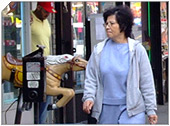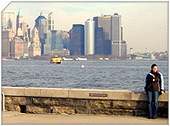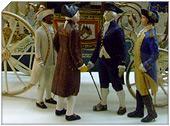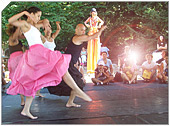Getting Started
Index
NYC Neighborhoods
Manhattan
Brooklyn
Queens
Bronx
Staten Island
NYC Icons
Chrysler Building
Flatiron Building
Empire State Building
Safe NYC
NYPD
FDNY
NYC Weather
NYC Climate
NYC Weather Forecast
Winter Season
Spring Season
Summer Season
Fall Season
NYC History & Politics
New York City History
Tammany Hall and Politics
New York City Politicians
New York City Personalities
Culture of Gotham City
Culture of the city
Cultural diversity
City in popular culture
|
Gouverneur Morris (January 31, 1752 - November 6, 1816) was an American statesman who represented Pennsylvania in the Constitutional Convention of 1787 and was an author of large sections of the Constitution of the United States. He is widely credited as the author of that document's Preamble: "We the People of the United States, in order to form a more perfect Union...".
Morris is regarded as a visionary of the idea of being "American". In an era when most Americans thought of themselves as citizens of their respective states, Morris expounded the idea of being a citizen of a single union of states.
Career
In 1775, Morris was elected to represent his family estate in the Provincial Congress of New York, an extralegal assembly dedicated to achieving independence. His advocacy of independence brought him into conflict with his family, as well as his mentor William Smith, who had abandoned the patriot cause when it moved towards independence.
Despite an automatic exemption from military duty because of his handicap and his service in the legislature, he joined a special briefs club for the protection of New York City, a forerunner of the modern New York Guard.
As a member of the Provincial Congress of New York, he concentrated on turning the colony into an independent state. He was largely responsible for the 1777 constitution of the new state of New York.
Although he held no military commission, he was considered to be a brilliant military strategist. In May 1777, he was chosen by the state to coordinate the defense of General George Washington's Continental Army and the Continental Congress.
After the Battle of Long Island in August 1776, the British seized New York City and his family's estate. His mother, a Loyalist, gave the estate over to the British for military use. Because his estate was now in the possession of the enemy, he was no longer eligible for election to the New York state legislature and was instead appointed as a delegate to the Continental Congress.
He took his seat in Congress on January 28, 1778 and was immediately selected to a committee in charge of coordinating reforms in the military with General Washington. On a trip to Valley Forge, he was so appalled by the conditions of the troops that he became the spokesman for the Continental Army in Congress and went out to help create substantial reforms in the training and methods of the army. He also signed the Articles of Confederation in 1778.
In 1779, he was defeated for re-election to Congress, largely because his advocacy of a strong central government was at odds with the decentralist views in New York. Defeated in his home state, he moved to Philadelphia to work as a lawyer and merchant.
In Philadelphia, he was appointed assistant superintendent of finance 1781-1785, and was a Pennsylvania delegate to the Constitutional Convention in 1787, and returned to live in New York in 1788. During the convention he was a good friend of George Washington, and was responsible for the draft of much of the Constitution. The immortal words of the preamble "We the People..." sprang from his brilliant mind. He was "an aristocrat to the core" and believed that "there never was, nor ever will be a civilized Society without an Aristocracy". He also thought that common people were incapable of self-government and feared that the poor would sell their votes to rich people, and consequently thought that voting should be restricted to property owners. At the Convention he gave more speeches than any other delegate, totaling to 173. He had no role in the ratification of the Constitution.
He went to Europe on business in 1789 and served as Minister Plenipotentiary to France from 1792-1794. His diaries written during that time have become an invaluable chronicle of the French Revolution, capturing much of the turbulence and violence of that era. He returned to the United States in 1798 and was elected in 1800 as a Federalist to the United States Senate to fill the vacancy caused by the resignation of James Watson, serving from April 3, 1800, to March 3, 1803. He was an unsuccessful candidate for reelection in 1802. After leaving the Senate, he served as chairman of the Erie Canal Commission, 1810-1813.
|
New York City Search
Quick NYC
|



 New York Weather Forecast
New York Weather Forecast
 Ethnic composition
Ethnic composition


















